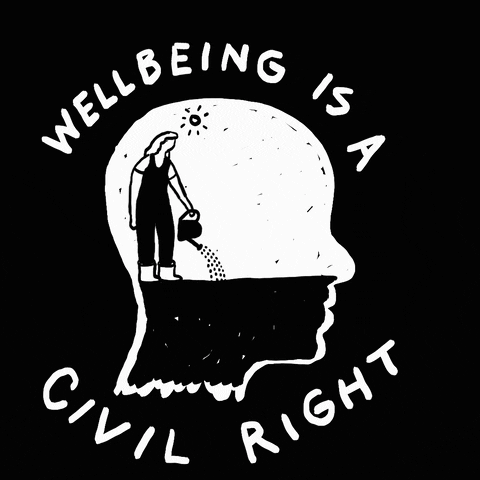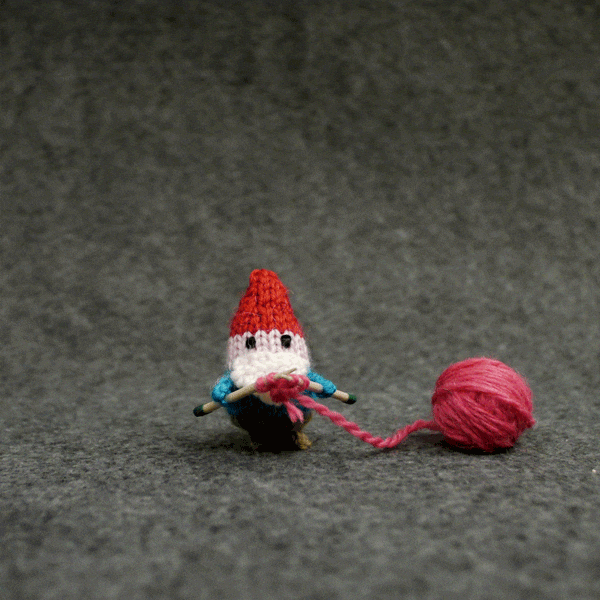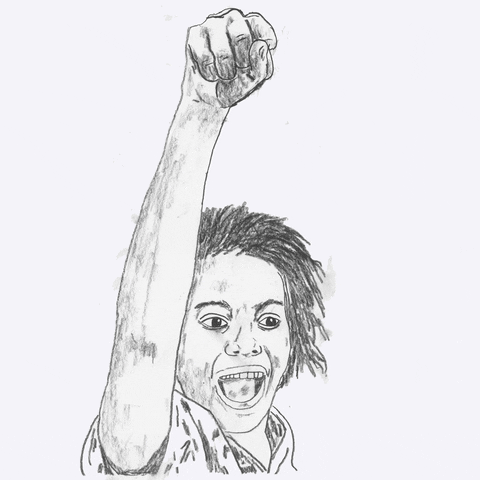- Subscribe to RSS Feed
- Mark Topic as New
- Mark Topic as Read
- Float this Topic for Current User
- Bookmark
- Subscribe
- Mute
- Printer Friendly Page
Live GR: Discrimination, 18th of May, 7:30 pm AEST
Hey everyone!
This Monday we're going to be having another live discussion, this time to do with Discrimination.
Discrimination can take place in many forms, and is present pretty much everywhere. It affects everything from someone's day to day life to the kinds of policies we see in government. This has profound effects on people's welfare and mental health, and this is definitely something to remember with all of the news and information circulating right now!

Because discrimination is so pervasive, sometimes we might not notice it in circumstances that don't affect us, or we may even take part without realising it. Which is one of many reasons why it's so important to discuss and keep discussing topics like sexism, racism, ableism, and other forms of prejudice- as well as how we can tackle them as a society!
Beyond this, this Getting Real chat is a safe space to discuss discrimination and how it has affected you and your loved ones, as well as how to cope with it and who to reach out to for support- whether personal or professional!

We'll be kicking off the discussion at 7:30 pm AEST on Monday the 18th of May, and hope to see you all there! 😄 ![]()
Welcome to tonight's GR, were we are chatting about discrimination -- what it is, how it has affected you or someone you love, how to cope with it, and how to get support! Looking forward to hearing everyone's thoughts and valuable insights!

If at all you find this conversation distressing or you feel like you need to talk to someone, about an issue then it's time to get some help! You can call Lifeline on 13 11 14 or Kids Helpline on 1800 55 1800 or use their webchat and email services found on their respective sites. The links can be found here.
If you are new here then welcome! Have a quick peek at our community guidelines you can find them here!
Here are our first few questions:
What might discrimination look like? What contexts can discrimination occur in?
I got to this convo a little later than expected.... once uni is over, I'm going to join the chat live, one of these days!
What might discrimination look like? What contexts can discrimination occur in?
Unfortunately, it can come in many forms... microaggressions, for example, are small, daily occurrences that carry negative messages directed at marginalised groups, often towards POC.
Who are some people who are more likely to face discrimination in our current society?
POC, WOC, queer people and people with different abilities!
What are some things we can do to prevent ourselves from judging or discriminating against others?
Get to know them, educate yourself, research, ask Qs respectfully! and Listen!
What can you do/ where can you get support if you're being discriminated against?
Ask what they need- don't assume! And listen to them. Help them practise self-care!
How can you support someone who is being discriminated against? What are some good ways to be there for someone who is facing discrimination? Maybe something you've done before and recommend to others!
It may be a little unusual, but I actually use my writing to help raise awareness and provide positive/educational messages...so hopefully that helps the community as a whole? And the individual that reads it? I hope so anyways!
How can we take steps towards change in society to make it a less discriminating place? Can you think of any other ways to be an ally for groups facing prejudice?
Yay, allyship! I think being an ally is key, as well as educating yourself, and learning how to create safe spaces for others properly.

On paper, this looks quite simple and logical, but the thoughts and actions of some people simply cannot be placed in our logic, some articles from this source surprise me, they seem to be irrational. It works the same way in the opposite direction. People who show toxicity will never understand our side.
I can't stress how important this conversation is and I'm so proud of this community after reading through everyone's responses.
What might discrimination look like? What contexts can discrimination occur in?
Discrimination looks like placing boundaries in someones life as a direct result of something they don't have control over. Whether it be their class, gender, sexuality, ethnicity or body. Unfortunately discrimination can occur across all social institutions and parts of society. It can also trickle down from beliefs held by the family you grew up in or your location.
Who are some people who are more likely to face discrimination in our current society?
People who live in poverty, people who live with disability, First Nations/Indigenous people, LGBTIQA+ community, women and also men.
What are some things we can do to prevent ourselves from judging or discriminating against others?
Challenge your world view and open yourself up to different perspectives when possible. Always listen to other peoples experience of life. Approach people with compassion.
What can you do/ where can you get support if you're being discriminated against?
Take legal avenues when possible and if you're comfortable, contact Victim Services if you have been subject to violence, reach out to community initiatives and organisations, connect with your community - whoever they may be.
How can you support someone who is being discriminated against? What are some good ways to be there for someone who is facing discrimination? Maybe something you've done before and recommend to others!
Listen to them, help them make contact with necessary supports, validate them. If you see discrimination taking place in public, if you are comfortable and think it is safe, you can stand by them. Simply having presence can help diffuse a situation and also lets the person in question know that they aren't alone.
How can we take steps towards change in society to make it a less discriminating place? Can you think of any other ways to be an ally for groups facing prejudice?
Being a good ally looks like: Letting people experiencing discrimination speak for themselves, facilitating space for those people to talk about their experiences and needs. Creating opportunities for people experiencing discrimination. Using your voice to help educate people in your life who may not understand (It is hard but this is usually more successful if you show empathy to the person who doesn't understand how they are being discriminatory).
If you are a person who has been discriminated against, never ever think you don't deserve representation and a seat at the table. As a woman of colour who is part of the LGBTIQA+ community, I have experienced my fair share of discrimination - but I'll never stop talking about my unique experiences and I'll always be proud of the different aspects of my identity.

Hey community!
We wanted to check in with everyone here in light of the recent events in the United States which have opened up a global discussion about systemic racism. In Australia there has been a light shed on Aboriginal deaths in police custody and around the world people are talking about violence against people of colour.
First and foremost we think it’s important to acknowledge that these world events can be extremely triggering and traumatic for people. Please do what you need to do to protect yourself in this time. I think it’s important to say that there is no pressure to participate in rallies or protests. It’s okay to not know what to do and to be worried about your personal safety as we are still experiencing a pandemic. As always in this time, decide how much time you want to spend on social media as it can be a very stressful place to be at the moment.
In saying all of this, that doesn’t mean you can’t be a powerful ally if that is important to you. There are so many ways to show solidarity and take action. So we thought we would put together a list of how you can be part of positive change.
Learn - one of the most important things you can do is continue to learn about racism and the groups of people in society that are most impacted.
Talk - another extremely important action for change is to use your voice. I personally find this difficult as confrontation scares me but talking to those friends and family members of yours that hold onto some harmful beliefs, having a calm but informative conversation can be a game changer.
Donate - There are lots of grassroots collectives and organisations that are doing amazing front line work to empower people and communities. Money does make a difference so if you have a little extra, contributing to one of these causes and a massive help.
U.S based:
Official George Floyd Memorial Fund
American Civil Liberties Union
National Bail Fund Network or local bail funds across the US
National Police Accountability Project
Australian based:
Fundraiser for the family of David Dungay Jr.
David Dungay Jr., a Dunghutti man from Kempsey, NSW, died in custody in December 2015. He was surrounded by six guards as he screamed “I can’t breathe”. This fundraiser was created by his mother, Leetona Dungay, who is appealing to the Director of Public Prosecutions for the NSW Government to take responsibility for the death of her son. All proceeds raised will fund the ongoing expenses for her campaign.
Fundraiser for the family of Kumanjayi Walker
19-year-old Kumanjayi Walker was shot dead by police in his Yuendumu home in November 2019. The Warlpiri people are asking for an independent inquiry into both the shooting and community policing. Dr. Lisa Watts has organised this fundraiser to pay for lawyers’ travel to Yuendumu in order to facilitate their request.
Fundraiser for the family of Tanya Day
Tanya Day died in custody in December 2017, in a cell at the Castlemaine police station. This fundraiser, created by her daughter Apryl Day, will pay for legal proceedings, accommodation, travel and living expenses for Day’s extended family, allowing them to attend independent inquest hearings.
Fundraiser for the family of Joyce Clarke
29-year-old Joyce Clarke was shot and killed by police in Geraldton last year in September. The first class constable charged with her murder recently entered a not guilty plea ahead of his trial later this year. This fundraiser was set up by Debbie Kilroy, Order of Australia recipient and one of the nation’s leading advocates for protecting women and children’s rights through decarceration. Funds will be donated entirely to Clarke’s family to allow them to travel to all court proceedings.
Pay The Rent – An ongoing campaign that encourages non-Indigenous people to donate a portion of their income for operating on unceded Indigenous land. All funds raised are given to Aboriginal people in Victoria at the discretion of a group of Aboriginal elders from multiple clans and nations.
The National Justice Project – A non-profit legal service that represents people who would otherwise be unable to find legal representation.
Barpirdhila Foundation’s First Nations Artists & Community COVID-19 Appeal – A community-run non-for-profit organisation raising money to support Aboriginal and Torres Strait Islander artists and communities affected by the coronavirus pandemic.
Sisters Inside – A not-for-profit organisation that “advocates for the collective human rights of women and girls in prison, and their families”.
Free Her – Organised by Debbie Kilroy of Sisters Inside, this ongoing campaign uses collected funds to release Aboriginal women from prison or pay outstanding warrants.
Black Rainbow – A wholly Indigenous-owned not-for-profit social enterprise that advocates for Aboriginal and Torres Strait Islander LGBTQI+ peoples.
Change The Record – Australia’s only national Aboriginal-led coalition of peak Aboriginal bodies and non-Indigenous allies.
Warriors of the Aboriginal Resistance – A collective of Aboriginal youths advocating for decolonisation and the philosophies of Aboriginal nationalism.
It can also happen covertly, like through microagressions about someone or something.
What might discrimination look like? What contexts can discrimination occur in?
Discrimination looks like feeling hurt and being excluded from something. Contexts it occurs in is in school's, workplaces and even at home. It can happy for a multitude of reasons, sexuality, gender and race but for many other reasons apart from those ones.
What might discrimination look like? What contexts can discrimination occur in?
It can definitely occur in a range of different ways. There can be verbal/ physical abuse, but it can also occur more subtly, such as excluding someone, or treating them unfairly in some way. The person doing the discrimination might not even be aware of it, as it may reflect unconscious biases they may hold that not even they are aware of! It's important to be mindful of those situations.
Discrimination can occur in almost every context -- within a family, to school/ the workplace, to friendship groups.
@Hozzles I think it's so true what you said that sometimes we don't know that we're discriminating against someone else. There have been a lot of studies done where people favour one group of people over another without realising it.
It can also occur is things that we don’t expect for example not being able to buy clothes because of your size and stores limiting styles of clothes to certain sizes so that you cannot wear current fashions, even just the thought that you can go to any store without having trouble finding clothes that will fit you while other have to go to specialty stores or even get things tailor made.
@Eden1717 It's so sad when clothing stores don't take into account that every body is different. 😞 I remember how hard it used to be to find shoes for myself and my sister because our shoe sizes weren't the standard sizes. I had to shop in the kids section while she had to get her feet measured and always get assistants to help her. It's also hard for us to buy clothes online. We physically have to go there to see what fits us.
@Saltwaterdreamtime I think discrimination also occurs in the practicality of the clothing. I went to schools that had uniforms and it was hard to move around because the female-gendered clothing would be tight and limit our movements, such as giving us skirts in contrast to pants. I find male-gendered clothing to be a lot more comfortable sometimes.
@WheresMySquishy so true about school uniforms!! Beyond gender issues (I remember once a boy in my school came in a dress as a joke and the teachers were really mad) just being out in public in a particular uniform can cause some people to treat you differently based on the school you go to...
I think that every group which has a characteristic that is uncommon is likely to face discrimination, although there are also stereotypes about things like people's hair colour and social class. I think groups which are different to each other can also discriminate against each other. I personally get annoyed with my rich Baby Boomer neighbours all the time because I feel that they look down on me and don't understand how hard things can be for people who aren't that financially secure or have disabilities or other kinds of challenges.
I think people who are more likely currently it is hard I feel like people who fit multiple thing that are often discriminated against are “more likely” for example disabled women of color or trans people of color...
@Saltwaterdreamtime Yep that is the conversation everytime sometimes I make them guess.
Next question what what can we do I guess try and be kind and accepting of others differences and try to educate ourselves about these issues as best we can.
Goodnight @Saltwaterdreamtime! Thank you for all your contributions! It was great chatting to you. 🙂







